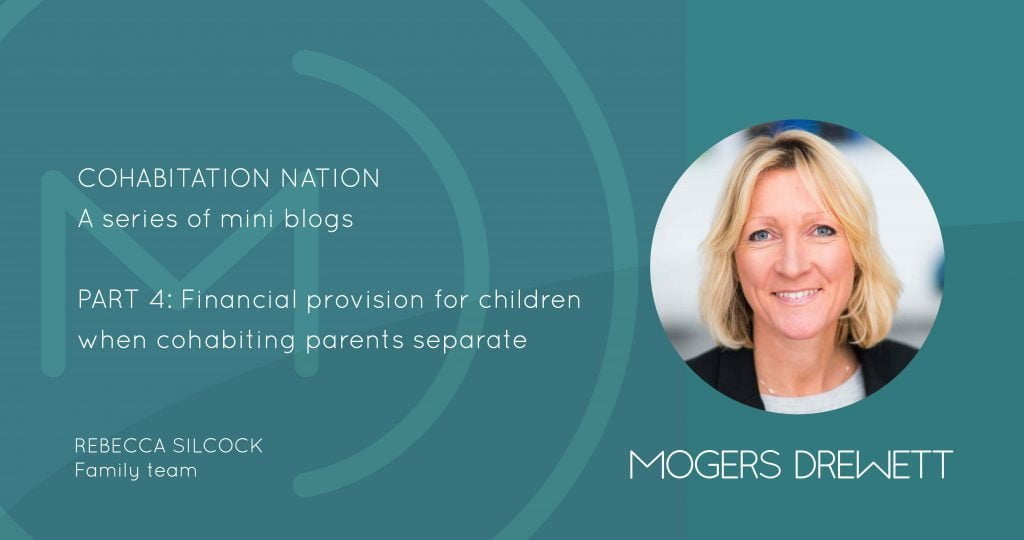Cohabitation Nation: financial provision for children when cohabiting parents separate

The concept of a ‘common law spouse’ is not recognised under English Law. This means that often people mistakenly believe that the law offers cohabitating couples protection, especially when they have been in a relationship for a number of years. However, the law treats married couples and cohabiting couples differently. It is important for cohabiting couples to understand the difference and, when starting a new relationship, to understand how to protect yourself. This week we will be exploring topics relating to cohabitation and dispelling a few myths surrounding common law marriage.
Today’s article is by Partner and Head of the Family Team Rebecca Silcock, and explains how to make a claim for financial provision for children when cohabiting parents separate.
If you are not married to your children’s mother or father many people think the financial obligation that parent has is limited to maintenance. This is not the case. Most people are aware that the court has wide ranging powers to reallocate assets and consider how to divide finances both in relation to capital assets such as savings or houses, income and pensions on a divorce.
However not as many people are aware of the court’s powers in relation to finances for unmarried parents. Many of us would naturally assume the Children Act deals with arrangements for children such as where they will live and how often they will see the other parent. There is a schedule to the Children Act which provides powers to enable the court to make financial provision for a child when the parents are not married.
The first port of call if you are unable to reach agreement with your former partner in relation to finance for the children would be through the Child Maintenance Service for maintenance. However, depending on your former partner’s financial means, you may be able to ask for more financial assistance for your child. This can range from a top-up to the maintenance to payment of a lump sum of money to transfers of properties. The lump sum payments can be for costs such as school fees, to cover needs arising from a disability or to provide a home.
Many of us think these applications are only for the very wealthy where assets exceed needs but the court regularly considers cases where the assets do not comfortably exceed the needs of the parents and the children. This is a conundrum the courts are of course familiar with in cases where the parties have been married.
At the end of the day the child’s welfare is key, and, this was made clear in a recent case where the judge said that the welfare of the child must be a constant influence on the outcome.
At Mogers Drewett we have a team of solicitors specialising in all types of family matters, including making financial claims. If you have any questions or would like to discuss your situation, then please get in touch with our Family team on 0800 533 5349.
